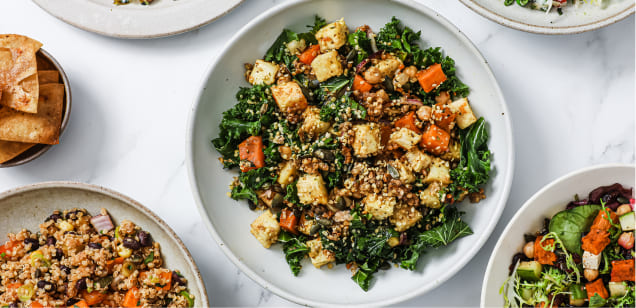Plant-based eating around the world
With the sudden influx of plant-based eating around the globe, it’s easy to believe that ‘Veganism’ is a modern diet… Yet vegan food has been eaten throughout history, all over the world.
‘Veganism’ is a term that was coined in 1944 by a British woodworker and animal rights activist, Donald Watson. He created the term not only to describe and define his diet but to share its values with the world. He became the co-founder of well-known organisation ‘The Vegan Society’ which still influences and supports vegan culture today.
Before Watson’s terminology, plant-based eating could still be found throughout history. Vegan and vegetarian diets have been traced back to ancient communities in Indian and Mediterranean societies.
The earliest date of vegetarianism was in 3300 BCE in Northern and Western India where philosophers and emperors chose to eat diets made up of plants and limited dairy. Pythagoras, a famed Greek philosopher and mathematician promoted eating a ‘benevolent’ diet that could now be considered between vegetarianism and veganism. The Buddha, Siddhārtha Gautama, who lived in ancient India during the 5th century BCE, discouraged followers from eating meat. The belief that humans should avoid harm to one another, as well as animals, can also be found in Hinduism and Jainism throughout time.
Vegetarian diets began building popularity in Western cultures when an English physician, William Lambe, suggested plant-based eating could cure disease and skin concerns. During the same period in the US, the inventor of ‘Graham crackers’, Sylvester Graham, shared a vegetarian diet that gained popularity.
If we want to think about the evolution of humans, plant-based eating has always been pivotal in our growth and development. Often, when we think of ‘cave men’ the image in our mind is of hardy men and women gnawing on animal bones, hunting and killing wildlife to sustain themselves. An article published in ‘New Scientist’ reflects on this “Archaeologists tend to emphasise the role of meat in ancient human diets, largely because the butchered bones of wild animals are so likely to be preserved at dig sites. Edible plants may have been overlooked simply because their remains don’t survive so well.”
By collecting data on plant abundance in unpopulated areas during the stone age and comparing this with populated areas, researchers at Bar-Ilan University, Israel, were able to find evidence of plant consumption. It was found that there were likely 55 different plants that ancient societies in this area harvested. It seems that plants have always been a large source of our diets throughout time.
It’s 2022 and we have never had more people adopting a plant-based diet. The increase is sharp and rapidly rising. As is the ease to eat ‘vegan’ food in our modern world. Currently, vegans make up 1% of the population. However, if the popularity of plant-based eating continues to grow at the current rate - this could increase to 10% by 2032.
India is a country with a long association with plant-based food. The avoidance of meat is rooted in religions such as Hinduism, Jainism and Buddhism as they share the principle of ‘Ahimsa’ which supports non-violence against living things. Present day India, is thought to have the largest percentage of vegetarians globally, at 39% according to ‘Pew Research’. Naturally, Indian cuisine supports vegan and vegetarian options without leaning on ‘vegan alternatives’ as the culture has been associated with meat avoidance for thousands of years.
Worldwide, we see a strong relationship between religion and veganism. In Eritrea and Ethiopia, Orthodox Christians have fasting traditions that include the exclusion of animal products over approximately 200 days of the year. The local cuisine supports this, through plant-based menus during fasting periods.
So while Western cultures are often associated with veganism, plant-based diets have been practised throughout time through their association with religion and cultural practices. It may seem like vegan diets are a new way of exploring healthy eating, plant-based food is still sacred and imperative for religious practices in communities around the world.
References:
- Claire Suddath. A Brief History of Veganism. Time. 2008.
- Anam Alam. The History Of Veganism: Know Your Roots. The Vegan Review. 2020.
- Colin Barras. Ancient leftovers show the real Paleo diet was a veggie feast. New Scientist. 2016.
- Revealing Vegan Statistics: Veganism Is on the Rise in 2022. Pawsome Advice. 2022.
- History. The Vegan Society.
- Lindsey Doucet. A Brief History of Veganism. Earthsave Canada. 2020.
- Olivia Young. Behold: The Best Countries to Visit as a Vegan in 2022. Thrillist. 2022.



